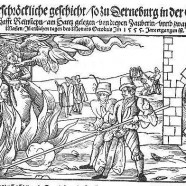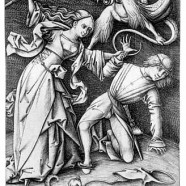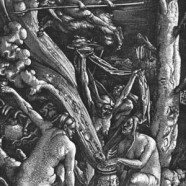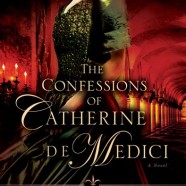Shakespeare’s Sisters—A Celebration of Renaissance Women Writers
April 23, 2016 marks the 400th anniversary of Shakespeare’s death with worldwide celebrations to mark his legacy. But what about the women? In her essay A Room of One’s Own, Virginia Woolf imagines the life of Shakespeare’s brilliant sister Judith, barred from the grammar school because of her sex and forced to hide her writing from her family. To escape a forced, arranged marriage, she runs away to London to seek her fortune in the theatre, only to end up pregnant, abandoned, and destitute. Out of despair, she kills herself. “It would have been impossible, completely and entirely...
Read MoreWitch Persecutions, Women, and Social Change–Germany: 1560 – 1660
Burning witches, 1555. PART THREE (Read Part One and Part Two.) Major witch hunting panics arose in the 1560s throughout Europe and were especially severe in the German Southwest. Who were the victims of this mass hysteria? Even though witches were believed to come from all social classes, the trials focused on poor, middle-aged or older women (Merchant 138). Throughout Europe, midwives and healers were particularly suspect. These “wise women” who healed with herbs were held especially suspect, as they were often older women who had astonishing empirical knowlege, which their...
Read MoreWitch Persecutions, Women, and Social Change–Germany: 1560 – 1660
“The Evil Wife” by Israhel van Meckenem, 1440/1445-1503A woman, encouraged by a demon, beats her husband with her distaff.PART TWOBy the latter half of the 15th century, the feudal agrarian economy was beginning to crumble, while the capitalist market economy was growing more and more powerful, as did economic competition between men and women. Men active in the market economy tried to further their interests by simultaneously excluding women from many professions and trying to marginalize the domestic economy by claiming that home-produced goods were inferior to shop-produced...
Read MoreWitch Persecutions, Women, and Social Change
I recently revisited my Senior Paper, written in 1988 at the University of Minnesota. Although some of my sources are *very* dated, most of the actual historical information seems to have stood up to the test of time and, though my focus in this paper was Germany, much of this material seems prescient for what I would later write in DAUGHTERS OF THE WITCHING HILL. Especially important in my research was the realization that women in the Middle Ages actually had more economic power and independence than they did in the Renaissance and Early Modern Period. I highly recommend Joan Kelly’s...
Read MoreGuest Post: History’s Black Widow
This week I’d like to present a guest post by C W Gortner, author of The Confessions of Catherine de Medici. Many of you already know Gortner from his previous novel, The Last Queen, which presents a sensitive portrait of the tragically misunderstood Juana “La Loca” of Castile. Gortner has passionately rewritten the histories of these maligned women, giving them voice and allowing them to tell their stories and set the record straight. And you never know . . . he might eventually write about a 17th century Firebrand. -Mary SharrattHistory’s Black Widow: The Legend of...
Read More






